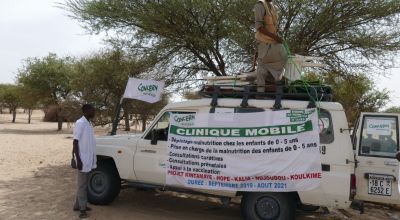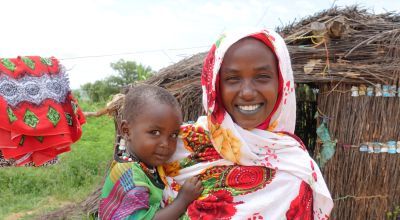
Read our 2024 annual report

Knowledge Hub
First celebrated in 1950 and spearheaded by the World Health Organisation (WHO), World Health Day takes place annually on April 7 and promotes awareness of a specific health topic or condition each year.
Here’s what you need to know about the holiday’s significance and history, the theme for World Health Day 2024, how Concern is celebrating this year’s theme, and how you can get involved.
What is the theme for World Health Day 2024?
This year’s World Health Day theme is “My health, my right.”
The WHO’s Council on the Economics of Health for All reports that at least 140 out of the UN’s 193 member states recognise health as a human right in their constitutions. However, progress towards codifying this right with relevant laws guaranteeing access to health services is stalled. In 2021, more than half of the world’s population (4.5 billion people) were not fully covered for basic, essential health services.
This has become an increasing problem, as the WHO argues: Millions of people are still recovering from the COVID-19 pandemic, the world is in the middle of a major global cholera outbreak, and both conflict and climate change are adding to the risk factors of death, chronic illness, and disability. Per the WHO, air pollution claims a life every five seconds.
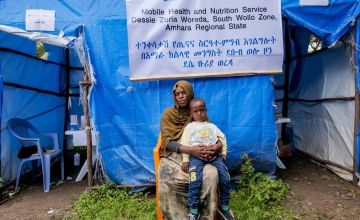
Why is World Health Day important?
It’s easy to take our health for granted until illness or injury strikes. It’s even easier to take our access to healthcare for granted until we need fast and quality care. Over the last few years, however, the fundamental right to healthcare has been underscored, both in terms of the inequities highlighted by the COVID-19 pandemic, and in the extensive press coverage of attacks against healthcare workers and facilities in conflict zones. In 2023 alone, there were 1,300 such attacks across 19 countries, which led to more than 700 deaths and 1,100 injuries.
As the UN’s Martin Griffiths said earlier this year: “Global health is under threat like never before.”
In the broader scheme of things, our health is an essential ingredient to living long, creative, and dignified lives. Even minor issues and fees can be catastrophic for people without a financial safety net. In 2019 (latest available data), roughly 2 billion people experienced financial hardship due to out-of-pocket healthcare costs, including 344 million people living in extreme poverty.
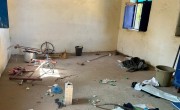

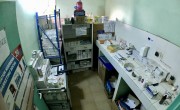
The World Bank and WHO report that, for most of those 344 million people, these healthcare costs were not related to catastrophic cases. This could, both agencies report, be avoided with better coverage for outpatient medicines and exemption for out-of-pocket fees for low-income patients. It would also lead to improvements in their overall health as they would skip fewer treatments and medications, setting them up for greater chances of success in their lives and livelihoods.
All of this is something NGOs that work with the WHO — like Concern — fight for every day. But having one day as a touchpoint serves as a chance for us to celebrate our success in the area of public health, while raising greater public awareness for the challenges faced by millions of people every day of the year.
World Health Day at Concern
This year’s World Health Day theme resonates in all of the countries where Concern works, countries where we are working with communities to build quality health services, access safe drinking water and sanitation services, receive nutritional support, and maintain resilience against the effects of climate change. Here’s what that looks like in a few of the countries where we work:
Midwife-Led Health Services in Bangladesh
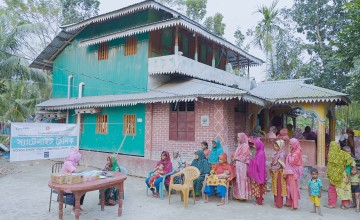
“My health, my right” is a powerful sentiment in Bangladesh, where nearly 25% of the country’s 171 million people live below the poverty line. In 2021, the government reported that over 5 million people fall into poverty every year as a result of meeting healthcare expenditures, and less than 1% of the country has health insurance.
For expecting mothers, particularly those who live on one of the country’s many islands, this is an especially burdensome situation. Concern has launched Midwife-Led Health Services (MLHS) in response to this. Using our community-approach to healthcare, we’re working with midwives and communities to develop a sustainable, locally-managed maternal and antenatal service for low-income women and children. This will make patient-centred care by trained midwives accessible to those who need it most, both geographically and financially, and encourage families to proactively seek care from service centres, rather than worry about the economic burden.
Mitigating the risk and spread of cholera in Yemen
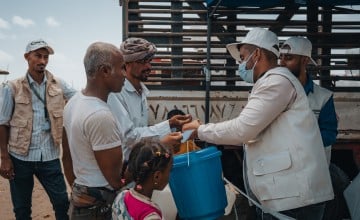
We’re currently in the midst of a global cholera epidemic, and it’s no coincidence that many of the epicentres are also areas affected by conflict. Fighting has destroyed water, sanitation, and hygiene infrastructure in countries like Yemen, which in turn has become one of the hotspots for the disease. Between 2016 and 2021, over 2.5 million cases were reported.
Concern recently began working in Yemen, focusing on both Health & Nutrition and Water, Sanitation, and Hygiene (WASH) projects designed to mitigate the risk and spread of cholera, as well as other waterborne diseases. One of the most simple, yet effective, responses has been distributing hygiene kits to families who have been displaced by the Yemeni Civil War and are living in informal tented communities. So far, we’ve reached 650 families across three internally-displaced persons camps in Aden Governorate with these economic, yet valuable, resources.
Clean water and toilets in Türkiye
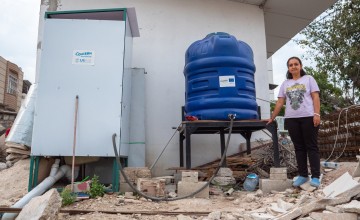
Quality healthcare, both emergency and preventative, is always a key concern after a natural disaster. A year after the devastating earthquake of February 2023 hit Türkiye and Syria, many communities are still left without adequate access to health and sanitation services. Families are still living in tents while they rebuild their homes.
In Hatay, Concern has provided water tanks for clean drinking and washing water, as well as latrines that provide both the privacy and sanitary standards to maintain public health as neighbourhoods rebuild.
Prioritising health during a complex crisis in Haiti
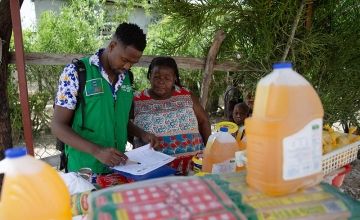
Since 2018, a multifaceted crisis in Haiti has left over 5 million people without enough food, and 4.7 million requiring some form of humanitarian assistance focused on healthcare. Despite an increase in need, hospitals and clinics around the country have become largely nonfunctional due to a high number of attacks and a low stock of supplies. Haiti has also become another hotspot of the global cholera outbreak, after having previously eradicated the disease.
In early 2024, Concern escalated its emergency response in Haiti to meet ever-increasing need, thanks in part to a $2.1 million (1.9 million euros) grant from USAID to assist over 32,800 people affected by the country’s hunger crisis. We are also working with local authorities and communities to prevent and mitigate the spread of cholera through waste removal, handwashing stations, and hygiene kit distribution.
In collaboration with our local partners, Concern has also improved access to services, including psychosocial support, for survivors of sexual and gender-based violence, which is also on the rise due to the country’s crisis. In 2023, we provided care to 3,077 people.
Other projects
The endline findings of the Concern Worldwide EU ECHO (European Civil Protection and Humanitarian Aid Operations) funded ERNE (Enhanced Responses to Nutrition Emergencies) three year programme, in 2023 reported increased access to quality health and nutrition services among target populations in five targeted countries, Democratic Republic of Congo, Ethiopia, Niger, South Sudan and Sudan.
In Pakistan, the Concern Health and Water, Sanitation and Hygiene (WASH) programmes adopted an integrated approach to improve the sexual and reproductive health of women and adolescent girls by ensuring that women and girls have access to menstrual hygiene management (MHM) materials, MHM information and education, and MHM supportive facilities.
Through pro-poor policy influencing by the Concern Kenya team with partners, the Community Health Services policy in Isiolo County has been successfully adopted supporting the poorest people in the county to access health services.
The Irish Aid funded Concern Burkina Faso programme is supporting health system strengthening through micro-projects and coaching of frontline health workers.
The Concern Sierra Leone programme, SLiSL2 (Saving Lives in Sierra Leone) provided monthly operational support to three government hospitals, which included fuel, electricity and water supply bills, stationery, and repairs of vehicles and generators last year.
How to celebrate World Health Day
Here are a few ways you can mark World Health Day, in keeping with 2024’s theme:
Know your rights
First and foremost, the WHO says you should know your health rights, including:
- The right to safe and quality care without discrimination
- The right to privacy and confidentiality of your health information
- The right to information about your treatment and the right to informed consent
- The right to bodily autonomy and integrity
These are rights that are often ignored in our own communities, as well as those around the world.
Prioritise your health
Are you a few years overdue on your annual checkup? Is there something you’ve been meaning to get checked out? Do you have some insurance paperwork that’s been sitting on your desk?
April 7 is a good day to focus on your own healthcare and schedule your necessary appointments if (since World Health Day falls on a Sunday this year) you’re able to book online. If not, set a reminder to do it first thing on Monday, April 8. Remember to also consider your mental health, dental care, and eye exams in addition to your physical exams or specialist appointments.
Learn about the barriers to healthcare faced by others and advocate for those who lack health equity
World Health Day is a great excuse to learn more about the state of healthcare around the world, including the barriers to getting that care faced by millions of people around the world. Below are a few stories that you can read and share today (and every other day!) with your family, friends, and communities — and, of course, on social media.



